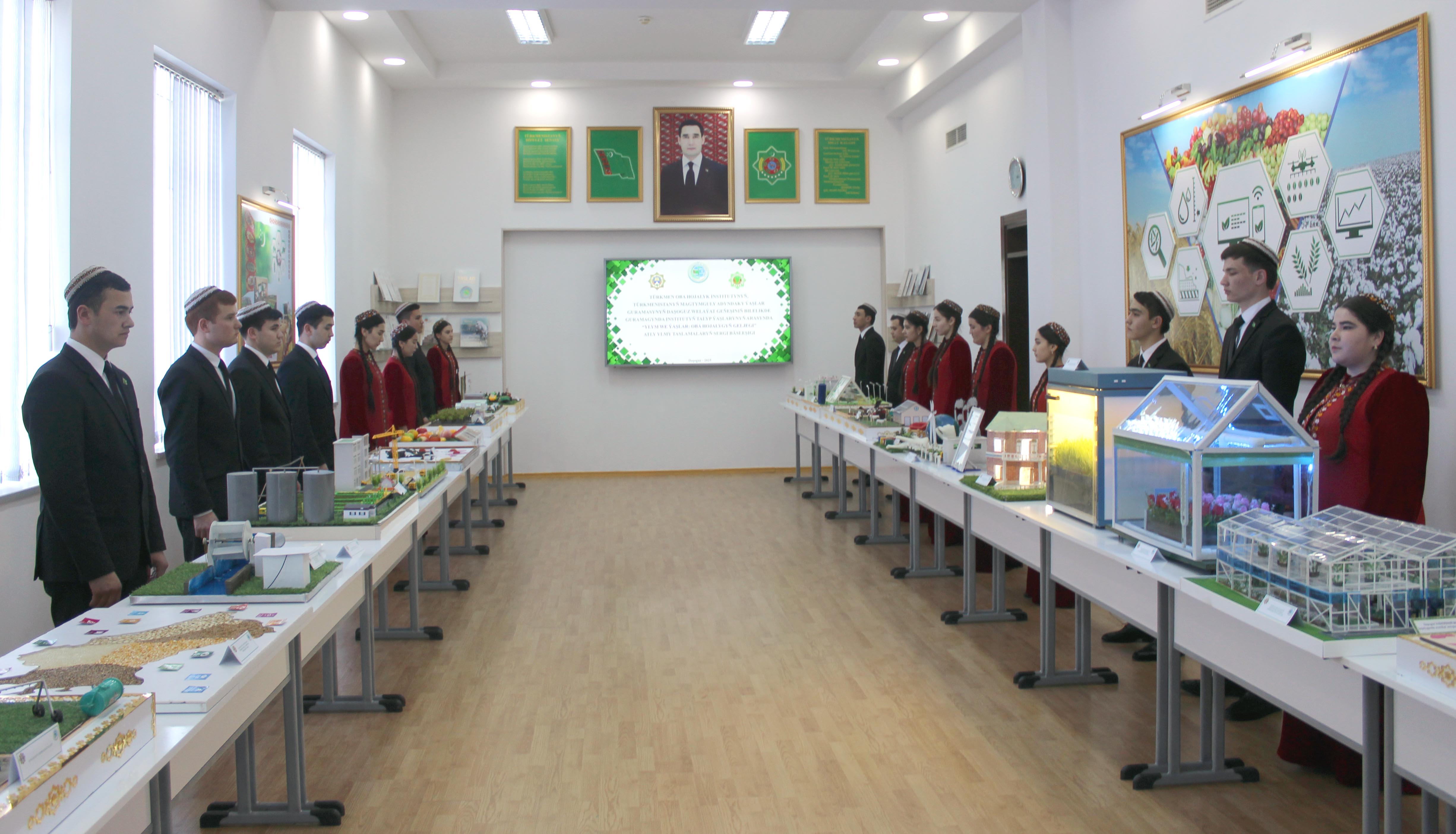
Young Scientists’ Council
In the period of the Revival of the New Era of the Powerful State, with the goal of raising generations with a broad worldview, high moral qualities, humanity, physical health, perfect knowledge, and as true patriots, as well as creating all conditions for their active participation in public life and the achievement of their goals, the revised version of the Law of Turkmenistan "On State Youth Policy" and the "State Program of Turkmenistan in the Field of State Youth Policy for 2021-2025" are in effect.
Furthermore, the "Action Plan for the Implementation of the State Program of Turkmenistan in the Field of State Youth Policy for 2021-2025" was approved by the Resolution of the Esteemed President. The establishment of the Department for Youth Policy under the Cabinet of Ministers of Turkmenistan, the Committee on Science, Education, Culture, and Youth Policy in the Mejlis of Turkmenistan, and the Center for Young Scientists under the Academy of Sciences of Turkmenistan and the Central Council of the Youth Organization of Turkmenistan named after Magtymguly is one of the key steps in implementing the state youth policy.
In implementing the youth policy, special attention is paid to assisting young citizens in career choice, obtaining professional education, and employment, as well as satisfying their aspiration for knowledge acquisition and engagement in science.
The Council of Young Scientists operates at the Turkmen Agricultural Institute. The goal of the Council of Young Scientists is: to assist the educational, methodological, and research work of the Institute aimed at improving the quality of highly qualified specialists; to develop scientific and technical potential of the Institute by attracting interested students and postgraduates to scientific work; and to align the organization of research work with new political, economic, and technological conditions.
The Council’s membership includes young teachers as well as active, science-interested students. The Council conducts its work in the following important areas:
- Attracting gifted students and young faculty interested in science to scientific work.
- Disseminating various types of scientific creativity among students and young faculty.
- Developing their interest in applied and fundamental scientific research.
- Achieving deep and creative assimilation of academic disciplines by students through the application of research teaching methods.
- Teaching students methods and ways to independently solve scientific and technical problems.
- Engaging talented students in various research and organizational activities.
- Achieving students’ familiarity and mastery of advanced modern high technologies.
- Participating in the organization and hosting of public scientific events, from the department level to the international level.
Conducting scientific and practical conferences, seminars, student scientific work competitions, subject competitions, scientific discussions in club activities, open lectures and consultations by prominent scientists, creative and public figures, as well as other work to improve the research activities of young scientists.
Attracting young scientists to create scientific and technical production oriented towards the high-tech market and requiring fundamental research, with the aim of developing scientific and innovative entrepreneurship skills.
Studying and disseminating the experience of organizing and conducting student scientific work in higher education institutions in our country and leading foreign countries.
Student scientific clubs were created at the departments of the Institute with the following goals:
- Improving the quality of professional training of young specialists.
- Preserving and augmenting the scientific, technical, and technological potential of the Institute.
- Facilitating the adaptation of students to new economic conditions within research activities.
- Creating and improving conditions for developing research skills in students.
- Developing creative thinking abilities.
- Deepening and consolidating the knowledge students gain in their studies.
Currently, 11 student scientific clubs operate at our Institute:
- Innovative Agronomy
- EcoLife
- Experienced Agrochemist
- Glorious History
- Information Environment
- Digital Management
- Young Veterinarian
- GeoGIS
- Agroengineer
- Amazing Physics
- Young Designer
Members of the Council of Young Scientists and the student scientific clubs of the Institute actively participate in scientific events held at the international, state, university, and institute levels, demonstrating high results.